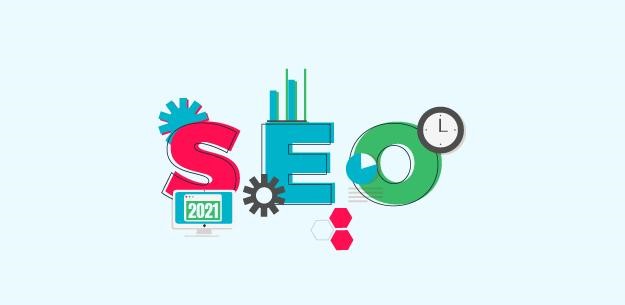SEO is an integral part of any business’s overall digital marketing strategy. It helps businesses rank higher in search results, resulting in better visibility and more customers. SEO helps build brand reputation and trust with your target market.

However, people have a common misconception that SEO is hard to learn. People believe that SEO is a very technical field and therefore learning SEO is a demanding task. While SEO isn’t necessarily hard to learn, it can be confusing and overwhelming at first, especially if you’re learning on your own. A few of the problems that make SEO confusing are the ever-evolving updates in the SEO world and the use of jargon in the field. Furthermore, you may encounter confusing updates, fluctuating rankings, and an excessive amount of information. However, SEO gets a lot easier to learn when you break it down into three major parts: On-page, Off-page, and Technical SEO.
How much time it takes to learn SEO?
Learning the fundamentals of SEO is pretty straightforward and it’s only a matter of months before a beginner has a grasp on the basics of the field. However, as you start going deeper layers of SEO, things get a lot more technical and complicated, as is the case with almost any field in the world.
It is important to understand that SEO is composed of various components, such as local SEO, e-commerce SEO, Conversion Rate Optimization (CRO), and User Experience (UX), each of which requires devoted practice and complete understanding in order to achieve SEO mastery.
Furthermore, SEO is an evolving field and thus the learning never stops. You need to keep yourself updated with all the changes and current trends.
How to Start?
A good way to hit the ground running! For beginners is by understand some of the basic concepts like how search engines work, keyword research, On-page SEO, Technical SEO, and Off-page SEO.
You can use resources like Moz’s Beginner’s Guide, Google’s SEO Guide, and SEMrush’s “SEO 101: A Comprehensive Guide for Beginners” to develop a basic understanding of SEO and kick-start your journey!
Apply your knowledge:

Lastly, it is very important to roll up your sleeves and get your hands dirty. SEO is a very practical field and therefore requires a lot of practice and experimenting in order to develop a deeper understanding of the subject. So, it is highly recommended to start your own blog and apply all your learning in real-time to get a better idea of the entire SEO process.




